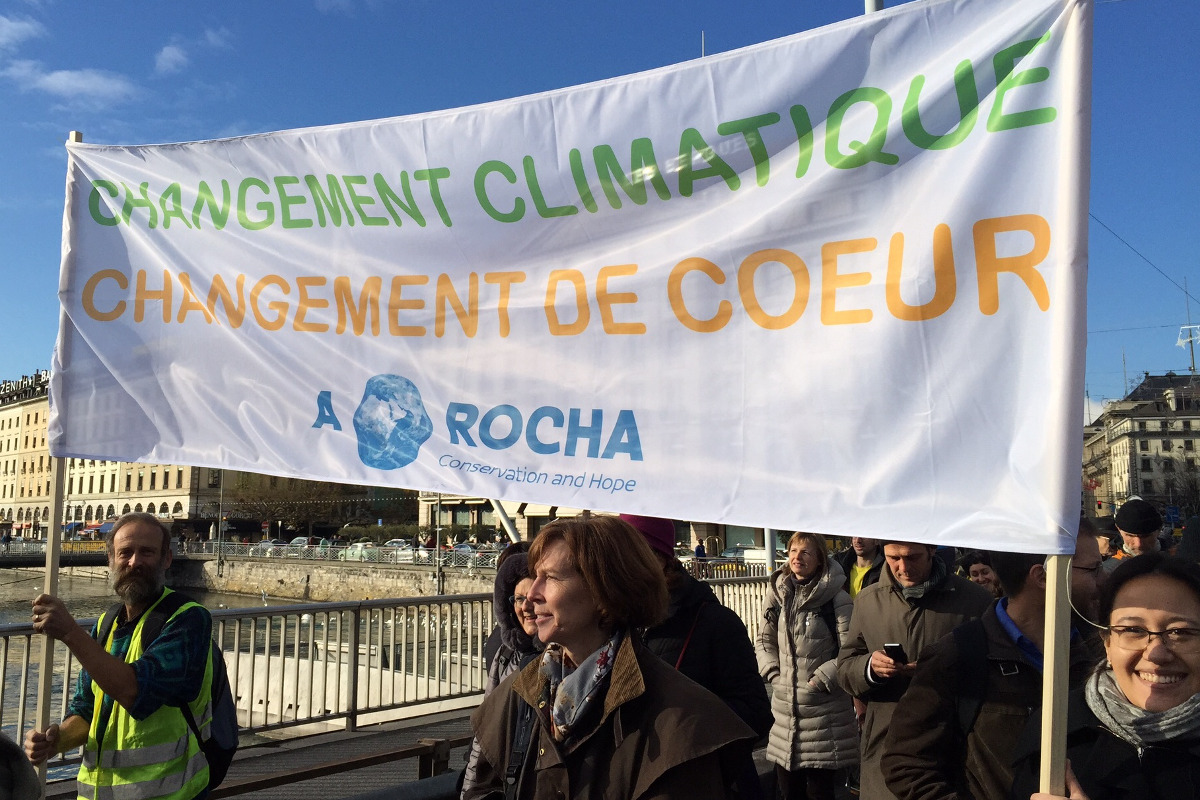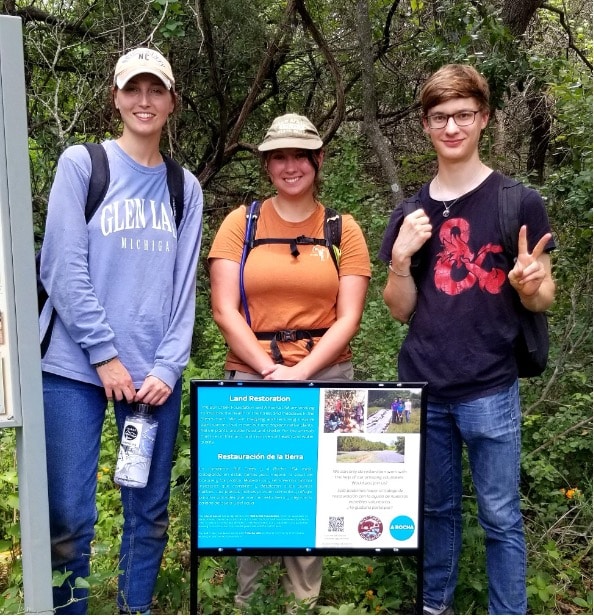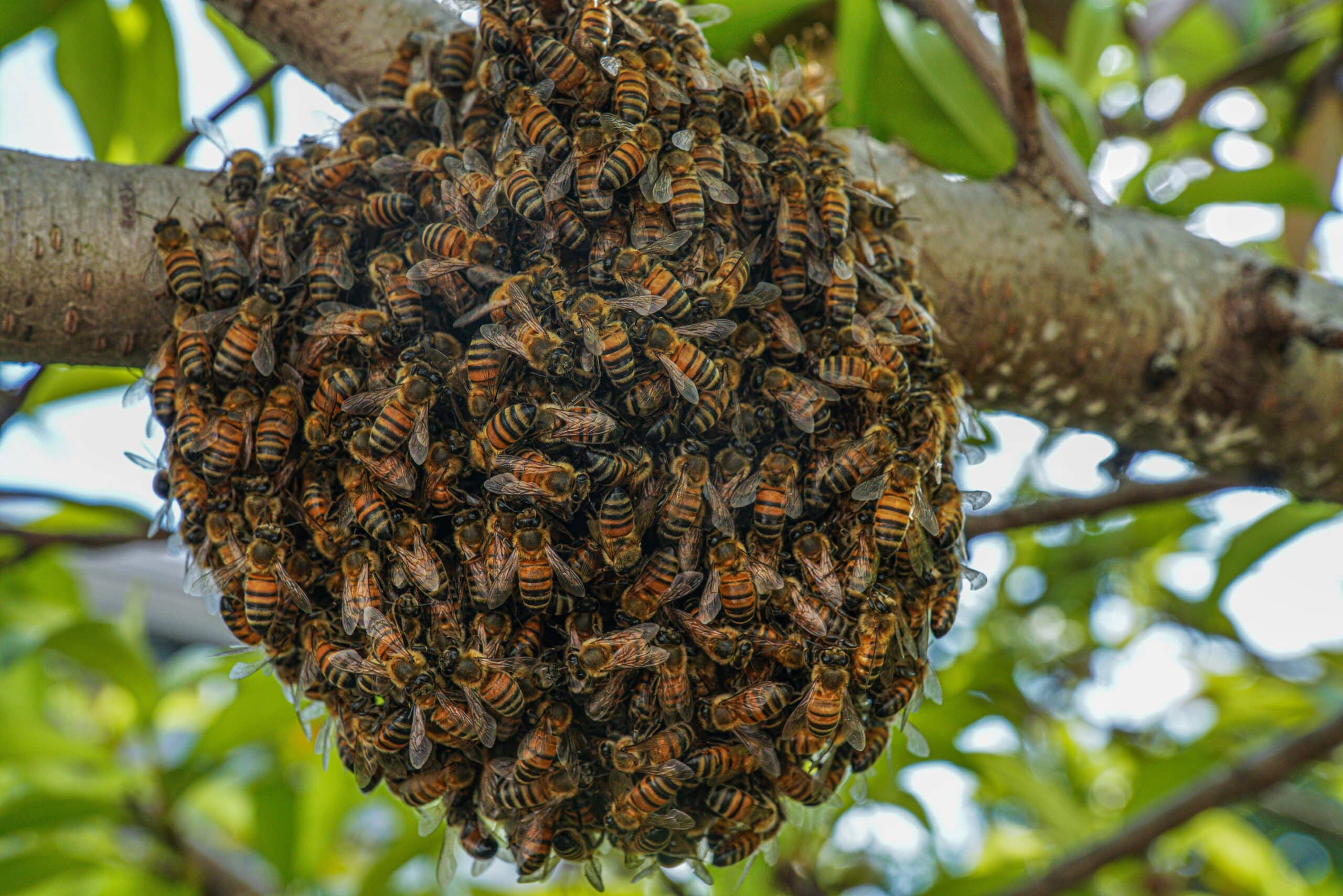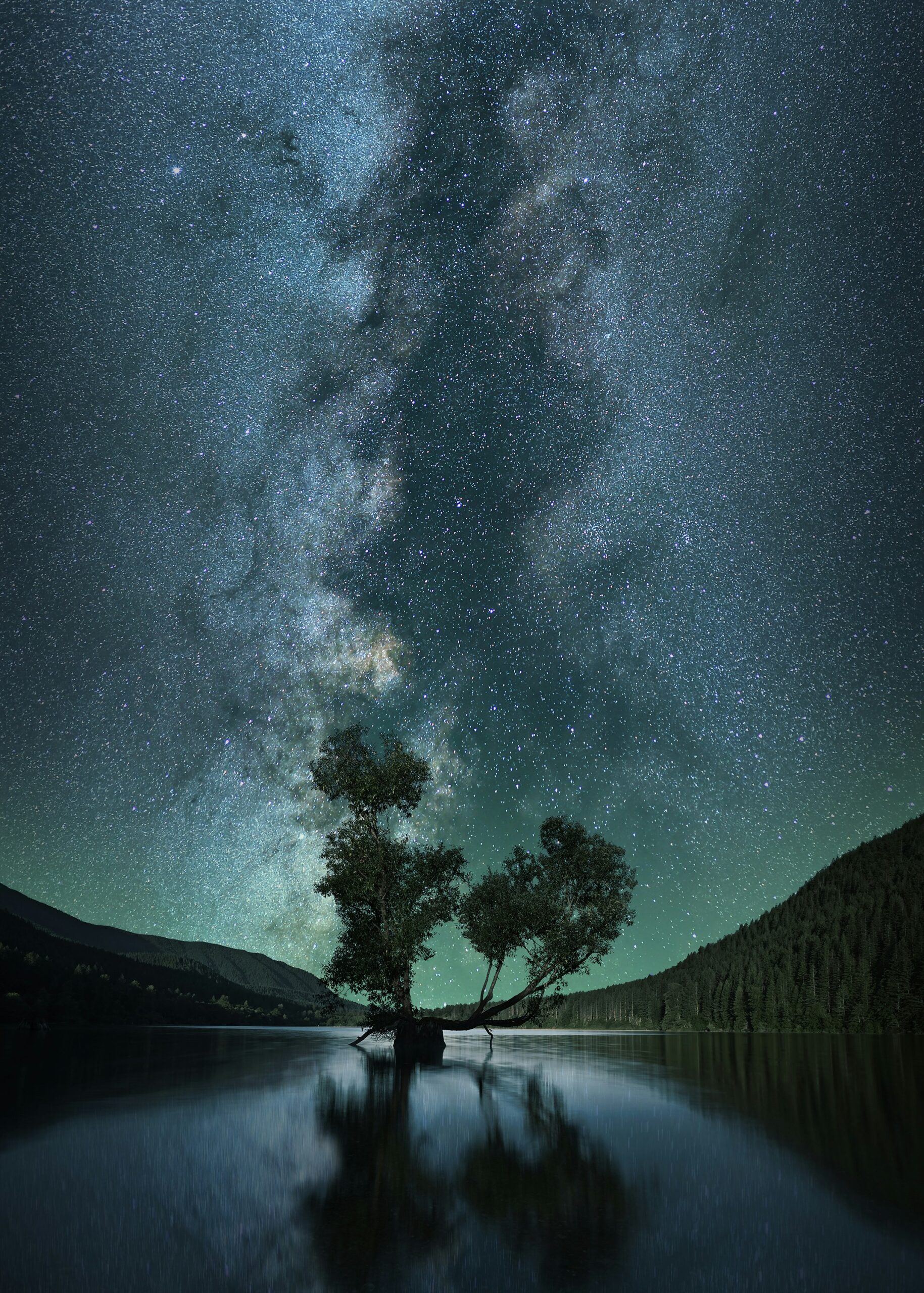Climate theology
Climate change seems to polarize Christians. As the world gathers in Paris for the COP21 climate talks, many, including from A Rocha, have taken part in marches and pilgrimages around the world. The Pope’s environment advisor, Cardinal Turkson has urged Catholics to pray and march too. Some have taken direct action: several British Christians were arrested for whitewashing the outside of the government ministry responsible for climate change. In a significant step, the US National Association of Evangelicals recently issued a strong and positive statement: ‘A changing climate threatens the lives and livelihoods of the world’s poorest citizens.’ In Paris, A Rocha is working in partnership with other Christian bodies to organize prayer and several important events.

A Rocha banner at the climate march in Geneva, Switzerland, November 2015 (photo: Helen Baker)
In contrast, the US-based International Prayer Council has spoken of its fears of a ‘global control agenda’ and quotes approvingly those who believe that ‘this is not about climatic developments, the evidence for which numerous scientists have challenged.’ Rather, they allege, ‘it is an effort by global elitists with Marxist and occultist connections who want to establish a new form of global tyranny.’
So, why does climate change action divide Christians? Why do some believe it is a satanic plot whilst others see it as a crucial moral issue? Why do so many more simply ignore it as irrelevant to their faith and daily lives?
In the end it’s about theology. Is Christianity a purely spiritual battle or does it impact how we treat the earth and the poorest? Which matters more to God, economic and individual libertarianism or justice and the integrity of God’s creation? What biblical themes and passages have relevance to an issue that simply wasn’t in the thinking of people in biblical times? In the rest of this brief blog I want to look at a few questions often raised by Christians who oppose involvement in climate action.
Isn’t it a sign of humanist arrogance to think humans could have changed the climate?
Ironically, the opposite is true! In biblical times people saw a clear and direct link between human sin and environmental chaos. Hosea 4:1–3 is one of several passages that speak of climatic change leading to collapsing harvests and wildlife extinctions due to God’s people’s failure to keep God’s laws. It was only the secular thinking of Bacon, Descartes and the Enlightenment that separated the spheres of nature and culture and assumed humanity could see itself as separate from and act independently of nature. Today we need to recover the biblical worldview that humanity and the earth’s systems are deeply interconnected and interdependent.
Can we trust science?
There’s a strong correlation between Christian scepticism of climate science and rejection of other ‘mainstream’ science, such as on evolution. Yet, committed bible-believing Christians including Sir John Houghton and Dr Katharine Hayhoe are leading climate scientists. Science, when done honestly, carefully, and with peer review is a friend, not an enemy, of biblical faith. It is simply thinking God’s thoughts after him, as Johannes Kepler observed. The first scientist was Adam, who in naming the creatures exercised the curiosity, discernment and careful classification that are essential to the scientific method. Every single national scientific academy and all but a few contrary individuals (most of them with no background in climate science) accept the global consensus that burning fossil fuels is adversely affecting the global climate.
Isn’t the climate God’s problem, not ours?
Some argue that since Jesus – not the disciples – calmed the storm (Mark 4:35–41) all our climate action is pointless: We should pray and leave it to God! It’s true that human action alone won’t save the planet, but God chooses to work through people. God’s saving plans in the climate catastrophe of Noah’s flood involved human action. As those called to reflect God’s image we’re called to reflect God’s character in servant leadership (‘dominion’) over the earth and its creatures. Romans 8:19 reminds us that creation is waiting for God’s children to be revealed – in other words for the Church to stand up and take action. Both climate scepticism and the more widespread apathy and inaction in many churches, are denials of our biblical call to serve and preserve the goodness of God’s world (Genesis 2:15).
Is the UN climate process part of an anti-Christian conspiracy?
Some have alleged a left-wing, occult elite is behind the UN and its climate process. They are right that climate change is a spiritual, not just political, battle but they are wrong about the enemy. As the many Christians involved in COP21 will affirm, there is no secret elite or agenda. Those at COP21 cover a spectrum from political left to right, have widely different agendas, and include a range of religious and non-religious views, including committed Christians from many nations. Jesus warned frequently about the dangers of addiction to greed and wealth. The spiritual forces we need to pray and work against are those who spread lies to protect powerful vested interests in fossil fuels and polluting industry, and who worship the idols of consumerism, individualism and unbridled economic growth without concern for poverty or environment. Those so critical of the world leaders gathering in Paris would do well to remember Romans 13:1 and 1 Timothy 2:1–3. The UN and national leaders need our prayers for God’s Spirit to break through the deadlock and for a deal that will reduce rising temperature, address climate injustice, and serve and preserve the creatures God declared ‘very good’.
We are happy for our blogs to be used by third parties on condition that the author is cited and A Rocha International, arocha.org, is credited as the original source. We would be grateful if you could let us know if you have used our material, by emailing [email protected].




[…] https://blog.arocha.org/en/climate-theology/ […]
Sorry but I do not buy this – Climate change is largely a natural rhythm of the planet cooling in some parts and warming in others. Recall the Ozone layer debacle? All natural shrinking and enlarging over alternating poles. You never hear of it anymore as it is a load of rubbish that mankind caused it. Climate change has been going on for millenniums and is not man made. Some glaciers are getting smaller, others are advancing. Yes we must care for our planet, sustain it, and prevent forests and natural wonders and life from being destroyed by greed but not through heavy taxes via the UN that ultimately will happen and cripple and burden and ensnare the masses.
Robert, there is no doubt at all that Climate Change “has been going on for millenniums”, but this is simply not relevant in the Climate Change context in question.
What we are witnessing is the change of climate since the industrial revolution, the scientifically undisputed fact of this is shown in polar ice core analysis.
As for heavy taxes, it is ironic that heavy taxes are raised and spent on the machinery of war and yet to harness the power of our God given energy: wind, solar, tidal and geo-thermal, energy that we now have the technology to harness, the money is not available.
Robert,
It’s odd that you choose the ozone layer as an example, as that’s one of the rare examples where international cooperation of this kind seems to have done quite well. The Montreal Protocol in 1989 acted to control certain pollutants that were causing ozone depletion, and the hole is now recovering. The climate negotiations are more difficult partly because there is no simple fix.
I would certainly agree with you on the need to look after the planet and not impoverish people, but I think there is more cause for hope than you think, as many countries, including India and China, now seem to be starting to realise the opportunities that low carbon development and innovation might bring for their citizens. So it is not all about tax & cuts. But we will have to wait and see what COP21 comes up with this time.
[…] 英語原文:https://blog.arocha.org/en/climate-theology/ […]
Robert, firstly sorry for a delayed reply … I’ve been rather busy, including in Paris for some of the COP21 events, where Christians from all over the world were united in prayer for a just and far-reaching result.
Others have responded well to some of your points, so let me simply make a few comments:
– Nobody’s asking you to ‘buy’ climate change and nobody disputes that the climate has always changed through the earth’s history.
– However, 97% of all scientists accept that humans are the largest factor in what we’re currently seeing – the speed is unlike anything ‘natural’ and the correlation between fossil fuel emissions has a traceable and direct correlation with what we’re seeing in terms of global warming trends.
– No science is ever 100% but in terms of simple risk mitigation it makes sense to change what we can. When medieval cities suffered massive outbreaks of typhoid and cholera there was no ‘proof’ that human sewage in water supplies was the cause, but there was plenty of evidence, and prudent action led to results we’re all grateful for. The same applies today – what’s to complain about if action now means a more just, safer, less polluted, more biodiverse world?
– As others have pointed out, the Ozone story is rather different from what you imply. It was a real, measurable problem directly caused by human CFC emissions, and it was tackled by global action under the Montreal Protocol. We don’t hear about it much now, because unanimous global action has allowed the danger gradually to be overcome. And the same applies with global action on climate change, as 195 countries of all political and economic persuasions have just agreed …
– Your fear of high taxes and the UN go to the heart of your comments. Climate Change is no UN conspiracy. Rather the opposite: there is a well-funded and well-documented conspiracy of climate denial supported by the fossil fuel industry and some wealthy economic libertarians who spread lies and confusion on the internet. The fact is that the longer we leave tackling this, the higher the financial burden in tax and other terms will be.
– It’s not tackling climate change that will hurt the poor and needy in our world. They are already hurting from climate disasters and changes. That’s why every single major charity involved with poverty and development recognises that tackling climate change is essential and urgent.
– In the end this is a moral question. Do you care more about God’s world and people made in God’s image, or about protecting your own selfish interests? I’m sorry to be so blunt, but that’s what this ultimately boils down to.
As for “crippling and burdening and ensnaring the masses”: Renewable energy efforts already create more jobs than fossil fuels and will continue to create jobs.
And just a few percent of the world’s nation’s military expenses (all of which are funded by taxing the poor, by the way), we could do so incredibly much good to the planet and our fellow human beings.
Caring for God’s creation is one (and probably one of the most important one in these times) way of “loving your neighbour as yourself” and “honoring God in everything we do”.
I note that at the end of Robert’s email he describes taxation via the UN. The UN doesn’t “tax” any countries and certainly not individuals within it. Robert is correct in mentioning there is an economic cost to addressing climate change. I think the cost of not addressing the problem is many times greater, but am very aware that at the core of many conservative political critiques of climate change action is this economic argument. And we’ll need to start cooperating internationally (as we did for ozone, and do for many other forms of pollution – even biodiversity!) which may politically conservative folks don’t like either due to fears of losing independence. My observation is the fears are economic and political – science does not address how this problem will be resolved, but does push us to look for an answer. How we do it (or IF we do it) is politics and economics (with some engineering thrown in) and hopefully the church will be a part of all of this.